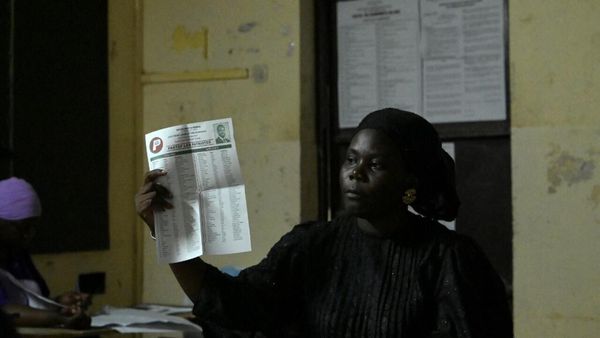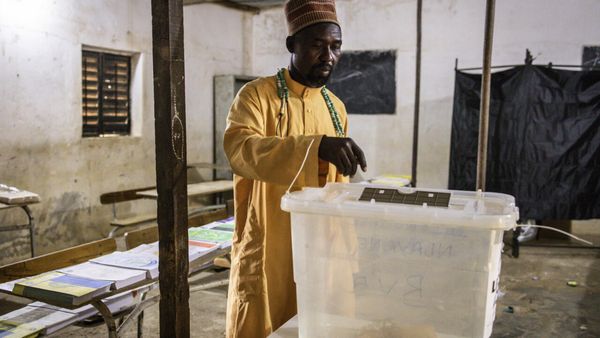
In Australia, most prosecutors remain largely anonymous. This is in stark contrast to the United States, where district attorneys create significant public profiles because they are (usually) elected by voters.
ACT director of public prosecutions (DPP) Shane Drumgold appears intent on changing that narrative, with repeated public appearances after the disastrous Bruce Lehrmann mistrial.
Last week, after the second trial of Lehrmann was “aborted” (in reality, there was zero chance a second trial was ever going to happen), Drumgold went on the offensive. He accused police of “a very clear campaign to pressure” the DPP to not continue with the prosecution, and said there had been “inappropriate interference” from police who were “clearly aligned with the successful defence of this matter”.
Drumgold’s complaints appear highly unusual, especially given the eventual result of the trial. If the police had advised Drumgold to not continue with the prosecution, then such advice appears to have been prophetic. Not only did Drumgold fail to secure a guilty verdict, but Brittany Higgins appears utterly broken, now recovering in a Queensland mental health clinic.
If anyone would be empathetic to Higgins’ plight, it would be Drumgold. The senior counsel himself has a tragic and inspirational background. His father took his own life after suffering from depression and alcoholism. Drumgold would leave school at 15 and become a postman, working his way up through management before commencing his law degree in 2000, aged 35. (His achievements are even more impressive given he had initially been rejected multiple times by several law schools.)
His decision to prosecute the Lehrmann case at first instance appeared to be incredibly high risk. In particular given the extraordinary public awareness of the matter, including desperate commentary in Parliament from then prime minister Scott Morrison. The high burden of proof and lack of witness evidence mean that rape prosecutions are difficult to secure.
In the Lehrmann case, there was a lack of physical evidence — Higgins didn’t make a formal complaint to police for two years but she spoke to the Australian Federal Police shortly after the incident, at the time asking officers not to pursue an investigation. There were difficulties with her testimony.
A text message to her boyfriend noting that Higgins was “clearing out [her] phone ahead of the police” also didn’t help in a trial that completely depended on the credibility of the defendant and his alleged victim. (It is natural to be extremely sympathetic to Higgins, but that alone does not justify such a high-risk prosecution which relied almost solely on her credibility as a witness, given the lack of physical evidence.)
The downside for Higgins was amplified because she chose to publicly pursue the matter rather than remain anonymous.
Given the lack of corroborating evidence, Drumgold’s decision to prosecute such a difficult matter amid the political backdrop and intense media interest was clearly the wrong one. And the result is two young people whose lives have been largely destroyed.
Correction: A previous version of this article mistakenly claimed Brittany Higgins discussed a book deal prior to lodging her police complaint.







